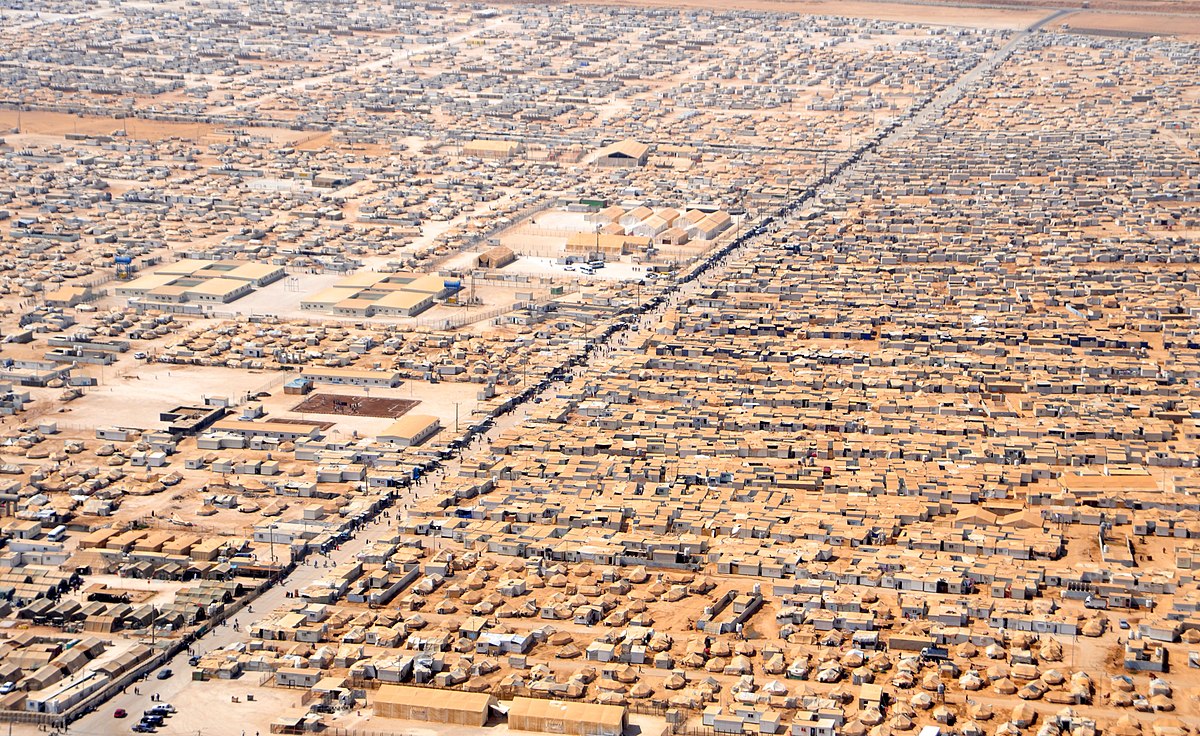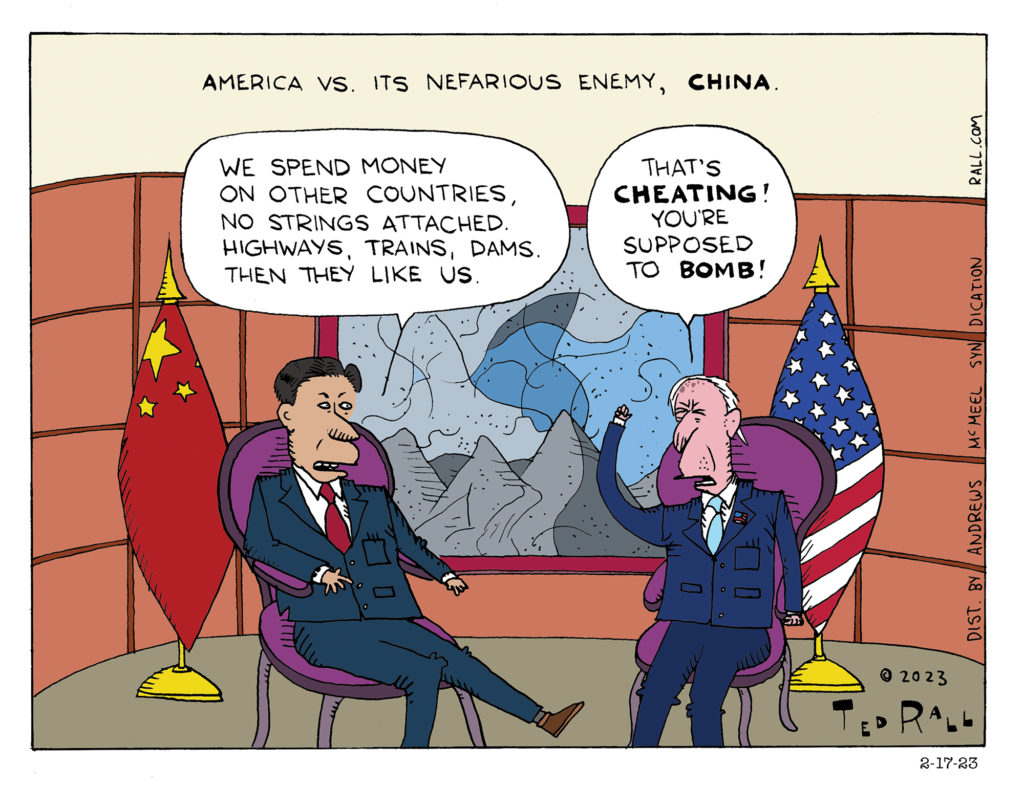
A few weeks ago, from an international and domestic-U.S. PR standpoint, Israel might have been able to bring its war in Gaza in for a hard landing. Now it has painted itself into a corner.
Gaza has been destroyed. By this time next year, so will Israel—not its physical plant, but its current status as a privileged, funded, protected nation-state.
The damage inflicted thus far is so severe and thorough that the Gaza Strip will be uninhabitable for the foreseeable future, at least several years. All or most of its 2.3 million residents, transformed into refugees, will be permanently displaced.
Nothing can change that. If a left-wing Israeli government were to come to power, unilaterally end the war and offer the Palestinians their own sovereign independent republic side-by-side with Israel, Gaza would need to be rebuilt at a cost of tens if not hundreds of billions of dollars. In the meantime, the Jewish state would have to provide long-term housing and public assistance for more than 2 million Palestinians throughout years of reconstruction. “You’ll end up having displaced people living in tents for a long time,” Raphael Cohen, senior political scientist at the RAND Corporation, told the Associated Press. But where?
Assuming that a new regime could muster the necessary political consensus and address the ensuing security concerns surrounding a massive population of internally displaced people, Israel is a small nation of fewer than 10 million people with high unemployment and an aging population; it can’t afford such a massive undertaking or the demographics to quickly absorb 2 million traumatized Palestinians.
De facto, Gaza has been been ethnically cleansed. Gazans have been herded from the north, which has been flattened, to the south, against which IDF airstrike targeters and ground forces have recently turned their attention. The vast majority of the population of Gaza is now massed a few miles away from the Rafah border crossing to the Sinai Peninsula. All that remains is for the Israelis to expel the traumatized and radicalized Palestinians into the Egyptian desert.
More likely, Israel will open the gate. The Gazans enter the Sinai of their own accord. Where else can they go? There is no home to which they can return. This second Nakba will occur early next year.
Which will leave the ruins of Gaza desolate and dangerous. Spurred by legitimate public-health concerns, Israeli bulldozers will cart away the rubble and the tens of thousands of rotting corpses trapped underneath. Demining experts will have to find and disarm tens of thousands of unexploded bombs, a process that can require decades.
The end result: 141 square miles of prime beachfront property. Real-estate developers abhor nothing more than a vacuum along a scenic coastline. Sandals Gaza City will look smashing jammed next to Club Med Khan Yunis.
This was the thinking behind the Israeli intelligence officials who wrote a “thinking” memo that suggested that the situation be exploited as a rare opportunity to drive out all the locals so they could seize and annex the entire territory of Gaza. The revelations that Netanyahu’s government obtained Hamas’ detailed plans for the incursion a year ago, viewed a video on social media that showed Hamas fighters training for the horror through repeated drills inside a mocked-up kibbutz (jihadi culture requires those about to stage a raid to warn their enemy in advance), Egypt warned Israel that Hamas was about to attack days ahead in advance, and that the IDF failed to respond for at least eight hours after Hamas breached Israel’s high-tech “smart fence” around Gaza (despite receiving an instant alert) prompts the cynic in me to wonder whether the Israeli government let October 7th happen on purpose.
What, Netanyahu and his colleagues may have asked themselves, are a few hundred or even a few thousand Israeli lives compared to the chance to get rid of half the Palestinians in Palestine, and join Gaza to Israel in the bargain?
If so, they miscalculated. U.S. officials have conveyed to their Israeli counterparts that Israel only has a few weeks left before losing international support and suffering a “strategic defeat.” Israel plans to continue for months.
The U.S. assessment is too optimistic.
The die is cast. Defeat is inevitable.
Public opinion is trending in favor of Palestine against Israel. By this point next year an appalled world, including a huge majority of American voters, will have witnessed the abject misery and injustice of the forced displacement of more than 2 million innocent civilians. Oceans of tents in the desert, screaming orphans and wounded ex-Gazans will fill high-definition social media and broadcast screens day after disgusting day. Public support for Palestine, already at historically record levels, will be so overwhelming that governments everywhere will find the pressure impossible to ignore. It will no longer be just the usual suspects in the Arab world who issue formal protests. From Tokyo to Ottawa to Paris to Rome, it will be politically untenable for any government to allow itself to be seen as complicit with the most outrageous war crime since the Vietnam War.
Eventually, the U.S. will have to ghost Israel. No more emergency war packages, no more $4 billion a year in military and other foreign aid. Even under a second Trump Administration, we might recall our ambassador.
Israel can’t see it yet. But it is well on its way to international pariah status at a scale which apartheid-era South Africa, its close Cold War ally which also went too far, could never have imagined.
(Ted Rall (Twitter: @tedrall), the political cartoonist, columnist and graphic novelist, co-hosts the left-vs-right DMZ America podcast with fellow cartoonist Scott Stantis. You can support Ted’s hard-hitting political cartoons and columns and see his work first by sponsoring his work on Patreon.)


 The strange story at the top of the headlines—the current president and the most recent former president are
The strange story at the top of the headlines—the current president and the most recent former president are